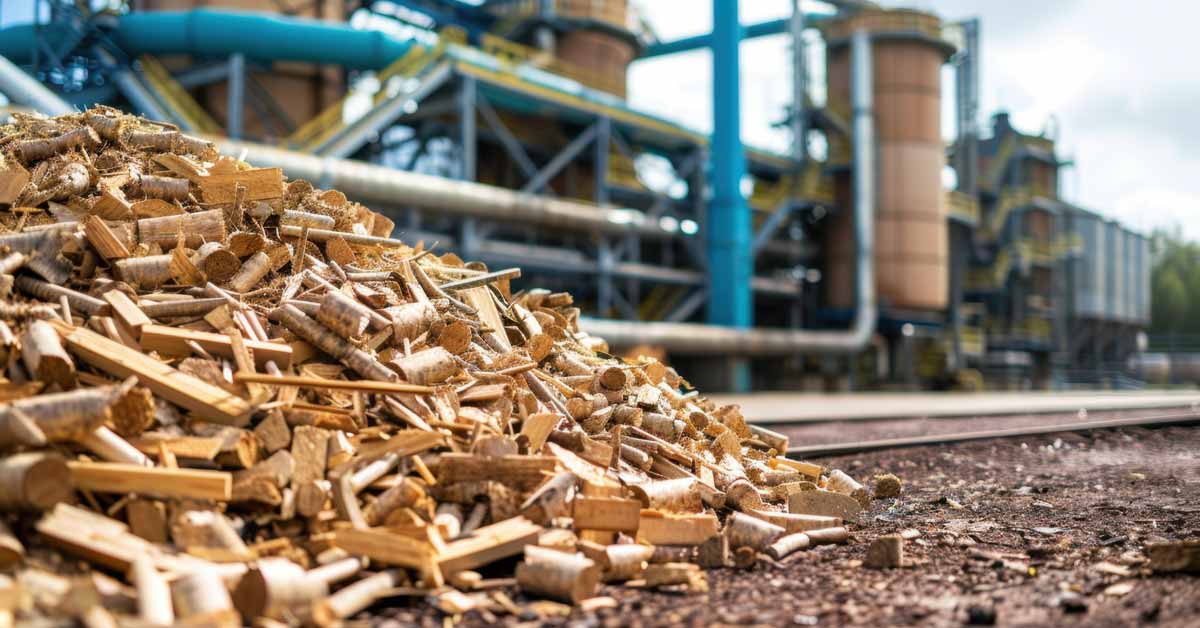3 min read
EUDR Update: New Due Diligence, Implementation, and Penalty Info
ResourceWise
:
Oct 10, 2024 12:00:00 AM

On October 2, the EU Commission announced a proposal for a one-year delay in the European Union Deforestation Regulation (EUDR). While the proposal needs approval from the European Parliament and Council, many market analysts predict that the delay will be accepted.
If approved, the newly proposed deadlines—December 30, 2025 for large and medium companies and June 30, 2026 for micro- and small enterprises (SMEs)—will give operators more time to prepare to meet compliance requirements. For many businesses, the potential delay will provide relief as the current December 30, 2024 deadline approaches.
Revised FAQs Offer More Clarity
Alongside the proposed delay, the EU has updated several sections of the EUDR FAQ, addressing long-standing confusion about the regulations. The revisions offer clearer guidance on everything from traceability and scope to definitions and timelines.
In this article, we will provide an overview of new EUDR FAQs related to:
- Due Diligence
- Implementation
- Penalty Information
Due Diligence FAQ Updates
This section of the FAQ (Section 5) outlines critical aspects of the EUDR, including customs declarations, compliance checks, documentation, and reporting timelines.
- Customs Declarations: Relevant products made outside the EU must have customs clearance before being placed on the market. A customs declaration linked to the product is considered sufficient evidence.
- Record Retention: Operators and SME traders must collect, organize, and retain due diligence documentation, including risk mitigation evidence and due diligence statements, for at least five years from the date the product is placed on the EU market or exported. Further guidance on certification and third-party verification schemes will be provided by the European Commission.
- Deforestation Compliance: Compliance checks are conducted by looking back to determine if the land where the commodity was produced was classified as forestland (as defined in Article 2) before the cut-off date of December 31, 2020. The commodity must not have contributed to deforestation after this date.
- Documentation Requirements: Documentation is mandatory for products listed in Annex I of the EUDR. Products not listed do not require documentation.
- Due Diligence Obligations: Operators must follow due diligence procedures including information collection, risk assessment, and risk mitigation. There are no pre-set checklists for operators; they must follow Articles 8–11 of the regulation. There is a broad template used for all commodities available in Annex II of the regulation.
- Registration and Reporting: Operators must register in the EU’s Information System and submit annual due diligence statements (DDS) covering multiple shipments.
- Satellite Imagery: The regulation recommends satellite and spatial imagery tools for verifying deforestation compliance but does not mandate their use.
- Due Diligence Statement Submission: Due diligence statements must be submitted before customs declarations. Operators can use the same statement for multiple shipments, provided due diligence procedures have been consistently followed for all commodities.
Implementation FAQ Updates
Newly added questions in FAQ Section 7 clarify how the Information System handles geolocation data.
- Geolocation Data Access: Only EU Member States’ Competent Authorities will have access to geolocation data submitted under the EUDR.
- Data Format Requirements: Geolocation data can be entered manually or uploaded as a GeoJson file, with WGS-84 as the supported coordinate format.
- Launch Timeline: The system is scheduled to launch by mid-December 2024, with user registration opening in November 2024.
- Geolocation Sharing and Governmental Restrictions: National laws that restrict sharing geolocation data do not exempt operators from compliance.
Penalty Information FAQ Updates
The revised FAQ Section 10 provides updates on penalties and enforcement mechanisms.
- Penalties Framework: EU Member States must establish a national penalty framework that aligns with the Environmental Crime Directive.
- Setting Fines: Fines for legal entities must be at least 4% of the total annual EU-wide turnover from the previous financial year, with adjustments for repeated violations.
- Self-Cleaning: EU Member States can decide whether to allow operators to take corrective measures, but this process must not reduce the effectiveness of penalties.
- Notification of Judgments: Final court rulings against legal entities must be reported to the EU Commission and published online.
- Deforestation-Free Requirement: Cutting down trees only constitutes a violation of the deforestation-free requirements if the land meets the regulation’s definition of a forest. This applies to areas larger than 0.5 hectares (approximately 1.25 acres) with trees taller than 5 meters (about 16.5 feet) and a canopy cover of more than 10% or with trees capable of reaching these thresholds. If the land is primarily agricultural or urban, or does not meet these criteria, cutting the trees does not breach the deforestation-free requirement of the regulation.
Biofuels and EUDR Enforcement: Data Collection and Documentation Imperative
Among the major commodities affected by the EUDR are forest products like wood waste, which are increasingly important in biofuel production. As demand grows for biofuels, especially in sectors like aviation (with sustainable aviation fuel) and transportation, operators must prioritize EUDR compliance.
Documentation for due diligence must be in place well before enforcement begins. Operators must begin gathering data far in advance to meet submission deadlines. Whether the proposed delay is approved or not, it is essential to have a collection and reporting process in place to avoid penalties and disruptions.
Read More: Potential EUDR Delay and What It Means for Biofuels
How Forest Trackt from ResourceWise Simplifies EUDR Compliance
Complying with the EUDR’s new requirements can be challenging, but ResourceWise's Forest Trackt solution simplifies the process for companies dealing with forest products.
Forest Trackt provides an integrated approach to tracking commodities throughout the supply chain. It streamlines compliance by minimizing manual efforts with advanced technology.
Key features of Forest Trackt include:
- Automated geolocation data collection
- Plot polygons for a single geolocation point
- Multi-factor risk assessment
- Secure transmission of compliance documentation to the EUDR database
Learn how Forest Trackt can streamline your business's journey to EUDR compliance today.




![[Video] Molecules to Markets Episode 1: Chemical Markets Begin 2026 in a Supply-Driven, Margin-Sensitive Environment](https://www.resourcewise.com/hubfs/images-and-graphics/blog/chemicals/2026/weekly-video-series-molecules-to-markets/CHEM-Weekly-Video-Series-Molecules-to-Markets-Episode-1.png)
